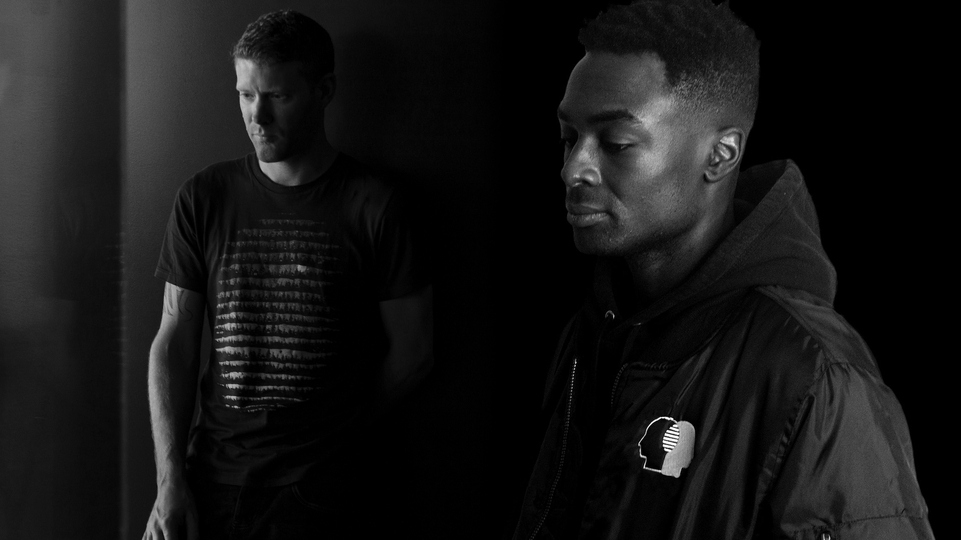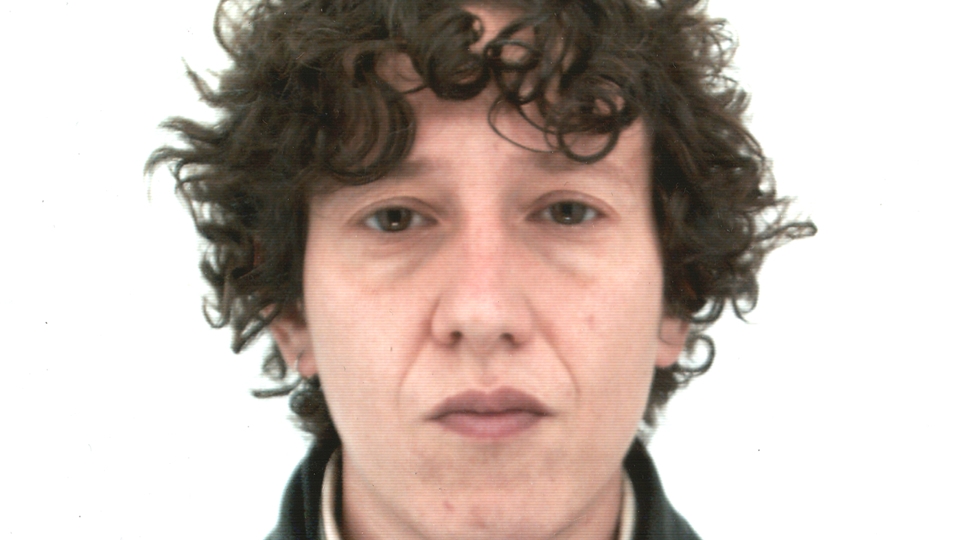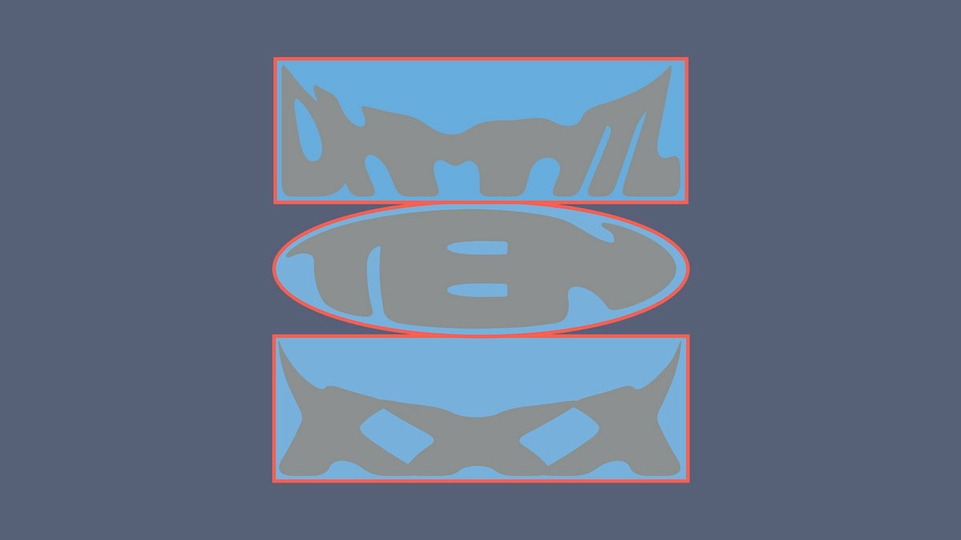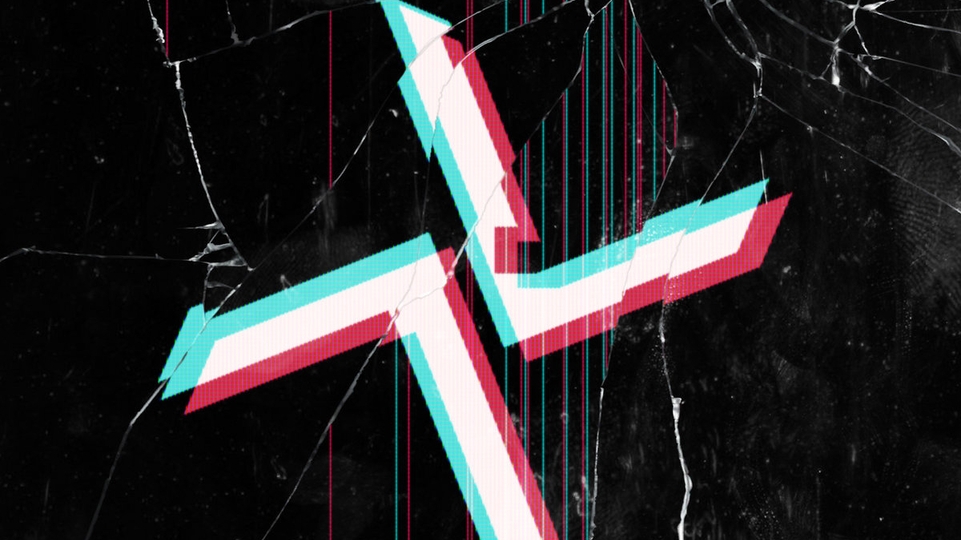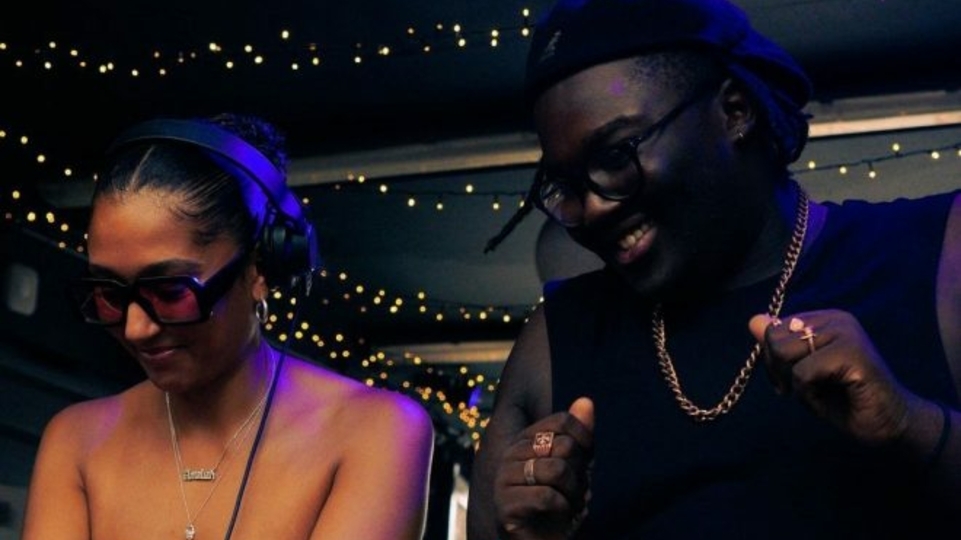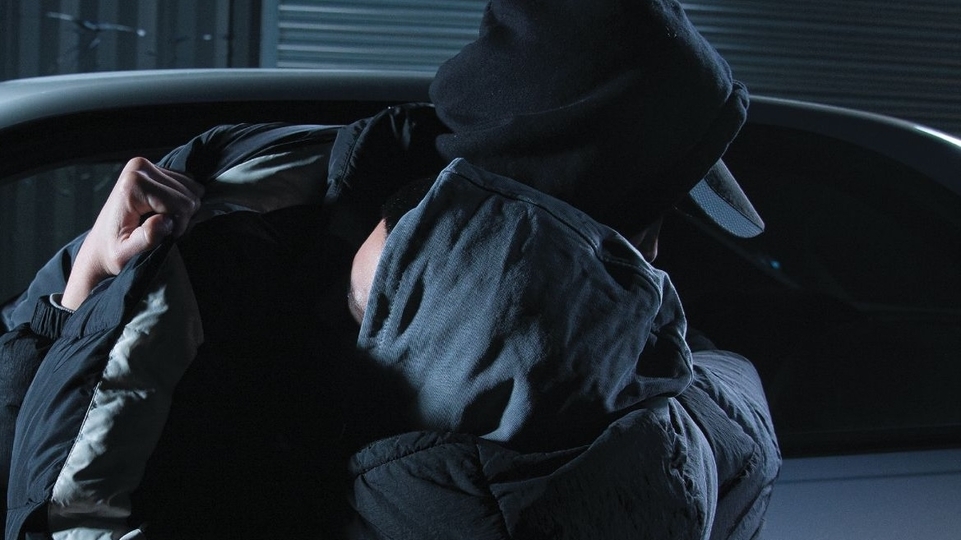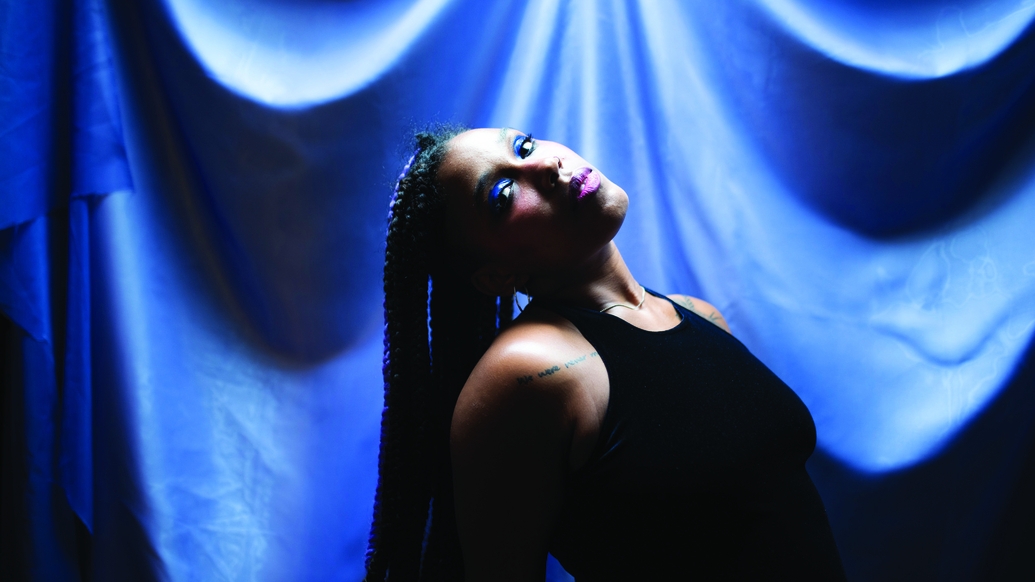
MHYSA: a manifesto for a liberated tomorrow
MHYSA’s thought-provoking work looks toward a post-binary, post-male-dominated future. It’s also some of the most atmospheric, beautifully immersive music around
“I am not grappling with notions of identity and representation in my art. I’m grappling with safety and futurity. The black diva is an archetypal figure black women dream through; she is a source of light, beauty, and healing through song.” Those aren’t the musings of your typical musical artist — and E. Jane, who’s been making music under the MHYSA sobriquet for the past half-decade and is the author of those words, is very far from typical.
Among other distinctions, the self-described “queer black diva and underground popstar for the cyber resistance,” who uses they/them as pronouns, isn’t primarily a musician — they’re an artist first, one who’s working within the conceptual, multimedia realm and is currently an artist-in-residence at the Studio Museum in Harlem.
They’re also, to an extent, a theorist and activist who gained a degree of notoriety through their 2015 writings on #cindygate (a response to artist Cindy Sherman’s 1976 blackface series of photographs) and their work on the same year’s NOPE manifesto, a tract which boasts passages like the following: “We are beyond asking should we be in the room. We are in the room. We are also dying at a rapid pace and need a sustainable future...”
Despite all that, they’re about to become known to much of the world primarily through their music — MHYSA’s new ‘NEVAEH,’ the follow-up album to 2017’s ‘fantasii,’ is coming out on February 14th on Kode9’s Hyperdub label. The album (“HEAVEN” spelled backwards, in case you were wondering) is a spectral gem, alternating between otherworldly electronic cuts and haunting acapellas, intense intimacy and grand gestures. Their music is often grounded in familiar territory — much of it references R&B, and the album boasts a take on ‘When The Saints Go Marching In’ — while seeming to float in some kind of interdimensional ether, simultaneously naturalistic and unnerving. It’s not club fodder by any means, but will undoubtedly appeal to fans of Hyperdub’s more experimental output.
SOUND ART
In truth, it’s almost inevitable that music would end up playing a major role in E. Jane’s artistic output. When DJ Mag reaches them by phone — they’re at the airport, awaiting a flight to Nigeria for a wedding — they come across as accessible and down-to-earth when talking about their background. Now living in Brooklyn after a stint in Philadelphia, they were raised in Prince George’s County, Maryland surrounded by music.
“I was getting tired with this trend in DJ culture, where I would go out and hear an edit of a song that featured a black woman, and they would manage to take out all the lyrics”
“Music was a big part of the sociality of my family,” E. Jane recalls. “It was something that my mother would use to express herself — like, even at my uncle’s funeral, my mother wanted to get up and sing a song to express how she felt about him. My parents had a big record collection and a big souped-up soundsystem in the basement, and my dad would play songs on it — he would say things like ‘Back in my day, this was a very big doo-wop record.’ I can remember [Janet Jackson’s] ‘The Velvet Rope’ album being a big deal when I was around seven, and they were very excited by the Jackson 5 and Michael Jackson.”
There’s more: “There was also a keyboard in our house from when I was a baby, and I started trying to play it when I was around four. My mother had me singing on stages at four, too. And I had to know how to dance from when I was a child. I couldn’t get away with not knowing,” they say with a laugh.
But non-musical artistic endeavors beckoned. E. Jane received a BA in Art History from Marymount Manhattan College in 2012, and an MFA from the University of Pennsylvania in 2016. It was at undergraduate school that their current musical persona started to unfold. After jamming around a bit with friends in college, E. Jane began working with friend lawd knows (also known as chukwumaa) as sound-art duo SCRAAATCH, a project that “expresses our sentiments surrounding black life, death, hypervisibility, and refusal,” as they described it.
“SCRAAATCH started out as a kind of performance project,” E. Jane says,” but we used a lot of music within those performances. Finally, we just said, ‘Why don’t we try to make song songs?’ and began to play around with music as another art form. We wanted to engage with music as a material.”
SCRAAATCH is an ongoing project — the duo finally released their debut EP, ‘Teardrops,’ last year — but before long, MHYSA came into being as well. “I think MHYSA happened because I had some specific ideas of what a solo project would be,” they say. “SCRAAATCH is a very particular thing, but basically I like to make what I like to make —and with MHYSA, I get to decide everything that happens. Control is nice!”
Many people were first exposed to MHYSA through ‘Thot Fantasy,’ a mixtape series that started in 2016. They’re hallucinogenic takes on R&B, featuring familiar voices (Rihanna, Beyoncé, and Cardi B, along with a slew of lesser-knowns), but reshaped into a dizzying swirl.
“I was getting tired with this trend in DJ culture, where I would go out and hear an edit of a song that featured a black woman —a rapper or R&B singer — and they would manage to take out all of her lyrics, maybe just letting her say a little bit at most,” E. Jane explains. “I found that frustrating. I was like, ‘But her verse is the best part! You’re ruining the song!’
So the idea was to have a mix series that was about representing black women’s voices. Like, wouldn’t it be nice if every song in this mix was a black-woman song? Algorhythms won’t do that for you — like, if you play Summer Walker on Spotify or YouTube, they’ll lead you to some guy’s R&B track. It’s insidious!”
Around the same time, original work, sometimes produced in collaboration with lawd knows, began to see the light of day, beginning with the ‘Hivemind’ EP, released by the NON collective; that was followed by 2017’s ‘fantasii’ on Halcyon Veil, a dreamscape of an album that one reviewer likened to “an epic poem.”
BLACK FEMME PERSPECTIVE
Which brings us to the even more ambitious, even more exploratory ‘NEVAEH’. E. Jane’s describes it as “a prayer for black women and femmes to be taken to or find a new and better world away from the apocalypse... NEVAEH is a safe space, a sort of negro heaven.” They tell DJ Mag that “there are a lot of themes to it, but self-love and self-acceptance as a black woman is a big part of the project.
Even ‘Thot Fantasy’... ‘thot’ was initially a pejorative term, one that was used to repress women. Calling the mixes ‘Thot Fantasy’ was me reclaiming that word, as a lot of other people were doing online and elsewhere. And a lot of it is music that dares to consider a femme perspective, a black femme perspective. Like, what would it be like if black femmes were speaking for themselves?”
These are the kinds of themes that aren’t often found in what could broadly be thought of as “popular music,” but E. Jane feels like things might be progressing, albeit just a bit. “I think there’s more of that in pop now than there once was — Beyoncé’s made women’s empowerment a brand to some extent — but what does that really mean?”, they ask. “What could it mean coming from a womanist edge? What does it mean to apply theory to club spaces, to the way you approach a club track? Those are the kinds of things I’m interested in.”
As far as how the album came to be coming out on Hyperdub, a label that’s no stranger to experimentation and the occasional dive into issues-oriented theory... well, that was almost by chance. “I didn’t even know Hyperdub until Dean Blunt was on the label,” E. Jane admits. Blunt and Inga Copeland, who had previously worked together as Hype Williams, released the hazy ‘Black Is Beautiful’ in 2012. Listening to MHYSA, you can make connections between the former and the latter.
But Shannen SP, the Hyperdub-affiliated DJ and A&R person, knew of SCRAAATCH, and invited the duo to perform at Ø, Hyperdub’s night at London’s Corsica Studios. “Through that we met Kode9, and we got to talk about what I’d been up to. When we got back, I sent some demos over, and Shannen liked them and sent them to Kode9 — and he liked them, too.”
One of the hopes of landing on a prominent electronic music label like Hyperdub, of course, is that it will bring MHYSA listeners unfamiliar with her sound. “It will be a new audience,” E. Jane agrees, “but I think the music really feels at home on Hyperdub anyway. It’s maybe a little different than a lot of what’s on the label, but I don’t think it’s anything that its audience will be confused by. Which is fine, because I’m not trying to be that confusing — I’m just trying to make good music.”
Still, ‘NEVAEH’ sees E. Jane playing a role in the cyber-resistance as much, if not more, than ever. “I think that all started from me being online as part of a culture of people who have been set up with certain structures as they currently are,” they say. “Meaning fashion designers, and writers, and visual artists, and musicians, people who are making cultural objects and are tired of working under the guise of white supremacy, tired of working under a male-dominated society, tired of living in a binary-dominated society, and who are making work that responds to that.
There are people who are not comfortable with the way things are, but still want to have joy, who still want to dance, who still want to have songs about love.” And E. Jane, through the MHYSA project, is giving them exactly that.

